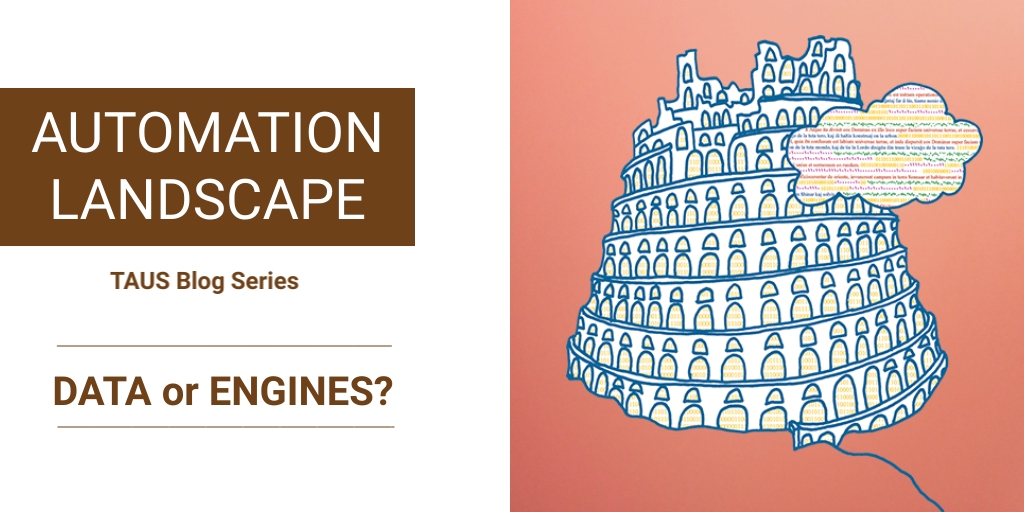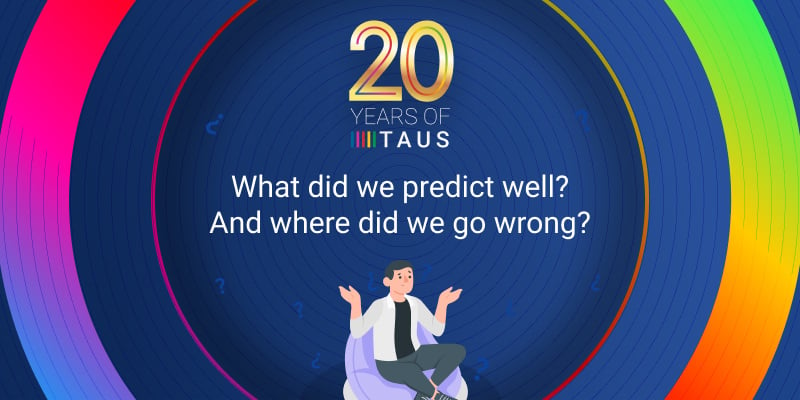Data or Engines? Battling for Dominance in the Emerging Translation Ecosystem
30/04/2019

Translation automation landscape is changing fast. In this series, we'll ask machine translation experts their opinions on the challenging questions about the current and future status of translation ecosystem. This time we investigate who dominates: Data or MT Engines?
Author

Long-time European language technology journalist, consultant, analyst and adviser.
Related Articles
03/06/2025
Discover how AI and innovation are transforming the localization industry and challenging traditional methods.
21/11/2024
Celebrating the 20th anniversary of TAUS this month caused the team to look back at the predictions and outcomes so far. What have we achieved? What went wrong?
 by Dace Dzeguze
by Dace Dzeguze27/11/2023
Explore the fascinating journey of Lisa Vasileva, a Machine Learning Engineer at TAUS, as she transitions from a professional translator to the field of Natural Language Processing (NLP).



